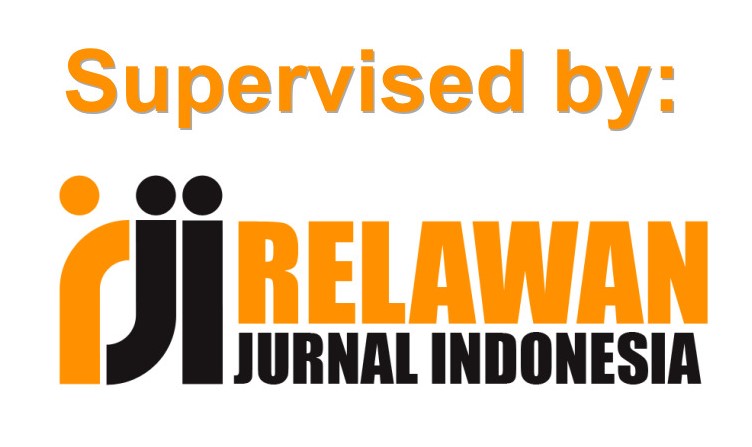Sexual Deviations in the LGBT Community on Islamic Law Perspective and Its Impact on the Existence of Muslim Families
Abstract
The phenomenon of sexual deviance committed by the LGBT community amid social life is currently attracting attention for researchers to study more comprehensively by conducting a study of LGBT from the perspective of Islamic law and also looking at its impact on the existence of Muslim families because of their understanding and ability to understand the LGBT phenomenon very important. This research is included in the literature review category, complemented by using qualitative methods with a descriptive-analytical approach. Therefore, the results of this study state that LGBT behaviour is not natural or formed by a socio-cultural process at the beginning of human creation. In the implementation of punishment from the perspective of Islamic law, the LGBT community can prevent it from happening again and will create legal awareness for other members of society to avoid this act or other sexual deviations because apart from having an impact on health, it also affects social life, politics, economically, sociologically, psychologically and even religiously have damaged the joints of the family institution. Nonetheless, the existence of the LGBT community must still be respected on a humanitarian basis and given access to education, politics, the economy, and in all other fields.
Keywords
Full Text:
PDFReferences
Afif, Muh Bahrul. “Islam and Transgender (A Study of Hadith about Transgender).” International Journal of Nusantara Islam 7, no. 2 (August 9, 2019): 185–189. https://journal.uinsgd.ac.id/index.php/ijni/article/view/6138.
Byrd, A Dean, and Stony Olsen. “Homosexuality: Innate and Immutable.” Regent UL Rev. 14 (2001): 383.
Dennerlein, Bettina. “Sexual Rights and Their Discontents: Yūsuf Al-Qaraḍāwī on Homosexuality and the ‘Islamic Family.’” Journal of Arabic and Islamic Studies 17 (January 1, 1970): 247–267. https://journals.uio.no/JAIS/article/view/6117.
Draman, Samsul, and Abdurezak A Hashi. “Health and Social Challenges of LGBT: Islamic Perspective.” IIUM Medical Journal Malaysia 18, no. 1 (November 20, 2020). https://journals.iium.edu.my/kom/index.php/imjm/article/view/219.
Ermayani, Tri. “LGBT Dalam Perspektif Islam.” Humanika, Kajian Ilmiah Mata Kuliah Umum 17, no. 2 (2017): 147–168.
Hamka. Tafsir Al-Azhar. Jakarta: Panjimas, 1979.
Harahap, Rustam DKA. “LGBT DI INDONESIA : Perspektif Hukum Islam, HAM, Psikologi Dan Pendekatan Maṣlaḥah.” Al-Ahkam 26, no. 2 (December 2, 2016): 223. http://journal.walisongo.ac.id/index.php/ahkam/article/view/991.
Hawkes Scott. Perpektives In Human Sexuality. Oxford: Pennsylvania University Press, 2005.
Ihsan, Wahyu, and Umar Faruq Thohir. “LGBT Dan Liwāt Umat Nabi Luth Dalam Perspektif Tafsir.” In Proceeding of Conference on Strengthening Islamic Studies in The Digital Era, 2:19–30, 2022.
Juditha, Christiany. “Realitas Lesbian, Gay, Biseksual, Dan Transgender (LGBT) Dalam Majalah.” Jurnal Komunikasi 6, no. 3 (2014): 22–30.
Karimullah, Suud Sarim. “Konsep Keluarga Smart (Bahagia) Perspektif Khoiruddin Nasution.” Tafhim Al-’Ilmi 13, no. 1 (2021): 75–88.
———. “Poligami Perspektif Fikih Dan Hukum Keluarga Negara Muslim.” MADDIKA: Journal of Islamic Family Law 2, no. 1 (2021): 7–20.
———. “Urgensi Pendidikan Pra Nikah Dalam Membangun Keluarga Sejahtera Perspektif Khoiruddin Nasution.” Jurnal Kariman 9, no. 2 (2021): 229–246.
Kiki Megasari Yulrina Ardhiyanti, Syukaisih. “Fenomena Perilaku Penyimpangan Seksual Oleh Lesbian, Gay, Biseksual Dan Transgender (LGBT) Di Kota Peknabaru.” Menara Ilmu 11, no. 78 (2017): 53–61.
Lee, Po-Han. “LGBT Rights versus Asian Values: De/Re-Constructing the Universality of Human Rights.” The International Journal of Human Rights 20, no. 7 (October 2, 2016): 978–992. http://www.tandfonline.com/doi/full/10.1080/13642987.2016.1192537.
MacCarthy, Sarah, Sari L Reisner, Amy Nunn, Amaya Perez-Brumer, and Don Operario. “The Time Is Now: Attention Increases to Transgender Health in the United States but Scientific Knowledge Gaps Remain.” LGBT Health 2, no. 4 (December 2015): 287–291. http://www.liebertpub.com/doi/10.1089/lgbt.2014.0073.
Mukhid, Abd. “Kajian Teoritis Tentang Perilaku Lesbian, Gay, Biseksual, Transgender (LGBT) Dalam Perspektif Psikologis Dan Teologis.” Sophist: Jurnal Sosial Politik Kajian Islam dan Tafsir 1, no. 1 (2018): 53–75.
Mulyana, Septira Putri, Kristi Fosa Akwila, Lely Mahartina K Ummah, and Febrina Triswati. “Analisis Waria Atau Transgender Melakukan Operasi Ganti Kelamin Dalam Perspektif Hukum Islam Dan Hukum Positif.” istinbath 18, no. 2 (2019).
Nur, Iffatin, Teguh Teguh, and Hiba Fajarwati. “Litigation and Penology of Pedophilia in the Perspective of Indonesian Conventional and Islamic Laws.” Analisis: Jurnal Studi Keislaman 22, no. 2 (2022): 179–206.
Paisley, Varina, and Mark Tayar. “Lesbian, Gay, Bisexual and Transgender (LGBT) Expatriates: An Intersectionality Perspective.” The International Journal of Human Resource Management 27, no. 7 (April 11, 2016): 766–780. http://www.tandfonline.com/doi/full/10.1080/09585192.2015.1111249.
Rehman, Javaid, and Eleni Polymenopoulou. “Is Green a Part of the Rainbow: Sharia, Homosexuality, and LGBT Rights in the Muslim World.” Fordham Int’l LJ 37 (2013): 1.
Rokhmah, Dewi. “Pola Asuh Dan Pembentukan Perilaku Seksual Berisiko Terhadap HIV/AIDS Pada Waria.” Jurnal Kesehatan Masyarakat 11, no. 1 (September 11, 2015): 125. http://journal.unnes.ac.id/nju/index.php/kemas/article/view/3617.
Saleh, Gunawan, and Muhammad Arif. “Fenomenologi Sosial LGBT Dalam Paradigma Agama.” Jurnal Riset Komunikasi 1, no. 1 (February 28, 2018): 88–98. https://jurnalrisetkomunikasi.org/index.php/jrk/article/view/16.
———. “Perilaku LGBT Dalam Tinjauan Sosial.” In Prosiding 2nd CELSciTech: Urgensi Riset Dan Pengembangan Teknologi Informasi Dalam Mengatasi Masalah Bangsa, 2:45–51, 2017.
Santoso, Meilanny Budiarti. “LGBT Dalam Perspektif Hak Asasi Manusia.” Share : Social Work Journal 6, no. 2 (December 24, 2016): 220. http://jurnal.unpad.ac.id/share/article/view/13206.
Sayyid Sabiq. Fiqh As-Sunnah. Vol. III. Bairut: Dār al-Fikr, 1981.
Silva, Tony, and Clare R Evans. “Sexual Identification in the United States at the Intersections of Gender, Race/Ethnicity, Immigration, and Education.” Sex Roles 83, no. 11–12 (December 27, 2020): 722–738. http://link.springer.com/10.1007/s11199-020-01145-x.
Subhrajit, Chatterjee. “Problems Faced by LGBT People in the Mainstream Society: Some Recommendations.” International Journal of Interdisciplinary and Multidisciplinary Studies 1, no. 5 (2014): 317–331.
Suwardin, H. “Lesbian, Gay, Biseksual, Transgender (LGBT) Persfektif Imam Syafi’i, Hukum Islam Dan Hukum Positif.” Nuansa 11, no. 2 (December 1, 2018). https://ejournal.iainbengkulu.ac.id/index.php/nuansa/article/view/1364.
Winter, Sam, Milton Diamond, Jamison Green, Dan Karasic, Terry Reed, Stephen Whittle, and Kevan Wylie. “Transgender People: Health at the Margins of Society.” The Lancet 388, no. 10042 (July 2016): 390–400. https://linkinghub.elsevier.com/retrieve/pii/S0140673616006838.
Yanggo, Huzaemah Tahido. “Penyimpangan Seksual (LGBT) Dalam Pandangan Hukum Islam.” MISYKAT: Jurnal Ilmu-ilmu Al-Quran, Hadist, Syari’ah dan Tarbiyah 3, no. 2 (2019): 1–28.
ZAINI, HASAN. “LGBT Dalam Perspektif Hukum Islam.” JURIS (Jurnal Ilmiah Syariah) 15, no. 1 (March 18, 2017): 65. http://ecampus.iainbatusangkar.ac.id/ojs/index.php/Juris/article/view/489.
DOI: https://doi.org/10.24952/tazkir.v9i1.6910
Refbacks
- There are currently no refbacks.
Copyright (c) 2023 Suud Sarim Karimullah

This work is licensed under a Creative Commons Attribution-ShareAlike 4.0 International License.

This work is licensed under a Creative Commons Attribution-ShareAlike 4.0 International License.
Editorial Office:
Institute for Research and Community Services; Universitas Islam Negeri Syekh Ali Hasan Ahmad Addary Padangsidimpuan.
Jl. T. Rizal Nurdin Km. 4,5 Sihitang 22733 Padangsidimpuan, Sumatera Utara, Indonesia.
Phone: (+62) 634 22080 Faximili: (+62) 634 24022
e-mail: lppm@uinsyahada.ac.id
 View My Stats
View My Stats



